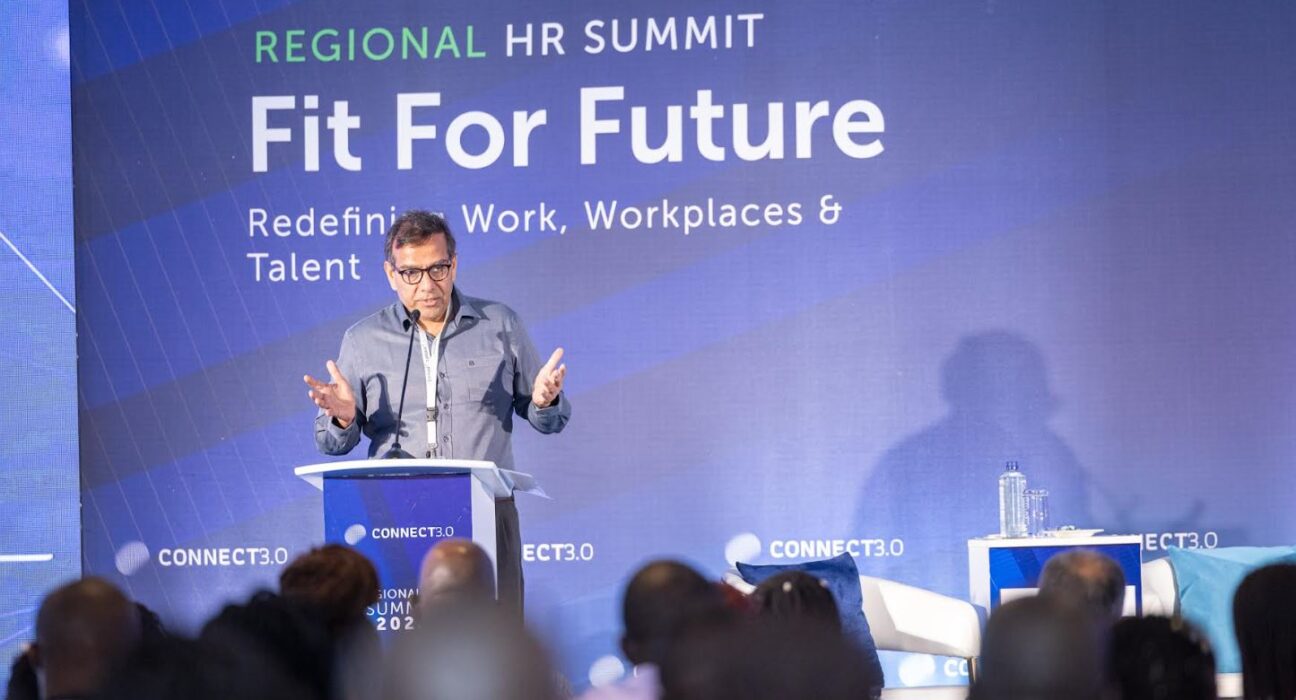Kenyan organisations have been urged to rethink their talent strategies to remain competitive in the face of rapid technological disruption, shifting demographics, and evolving employee expectations. Speaking during the HR Summit 2025 in Nairobi, business leaders stressed the need to build resilient, innovative, and people-centred workplaces as artificial intelligence (AI) continues to redefine the world of work.
AI and the Future of Work
Karim Anjarwalla, Senior Partner at ALN Kenya’s Anjarwalla & Khanna, highlighted the unprecedented impact of AI on business operations and workforce dynamics. He warned that AI is not just changing what people do, but how companies learn, hire, and lead.
“Artificial intelligence is not just changing what we do, but how we learn, how we hire, and how we lead. Unlike past innovations that amplified human productivity, AI risks removing human beings from the centre of work. This is one of the generational challenges of our time, and Africa must be proactive in responding,” Anjarwalla said.
He noted that Africa faces a dual challenge: bridging foundational education gaps while keeping pace with AI’s rapid acceleration. Organisations that integrate innovation and talent effectively, he added, will set themselves apart in an increasingly competitive global marketplace.
Bridging Education Gaps and Building AI Readiness
Kenya’s education sector faces growing pressure to equip graduates with future-ready skills. Despite producing thousands of graduates annually, many still lack the AI literacy, data analysis, and technological fluency needed by employers.
Industry experts at the Summit called for stronger collaboration between government, academia, and the private sector to bridge these gaps. Upskilling and reskilling initiatives, they said, must be prioritised to prepare Kenya’s workforce for AI-driven industries.
Flexibility Is the New Workplace Standard
Sundeep Raichura, CEO of the Zamara Group, emphasised the transformative shifts in workplace culture and employee expectations. Flexible work, once considered a rare benefit, has now become a baseline demand.
“A few years ago, flexible work was seen as a perk. Today it’s a baseline expectation. AI was once dismissed as hype in HR circles, but in 2025, bots are reshaping talent acquisition, learning, and employee engagement,” Raichura said.
He urged leaders to ensure that workplaces remain human-centred, despite increasing automation. “Innovation must serve humanity and not replace it. Whether workplaces remain human-centred or become technology-dominated depends on the choices we make as leaders,” he added.
The Changing Role of HR
The Summit underscored a paradigm shift in human resource management. HR leaders are no longer seen as administrative support; they are now strategists, culture-shapers, and central to business transformation.
Raichura noted that HR professionals must embrace data-driven decision-making, change management, and technological integration to guide organisations through digital disruption. “HR leaders are no longer backroom administrators, but strategists and, in many ways, the conscience of organisations,” he said.
The Summit Theme: “Fit for Future”
This year’s HR Summit, themed “Fit for Future”, focused on how organisations can prepare for emerging workplace realities. Key discussion areas included:
- Skills transformation: Upskilling employees to match changing business needs
- Leadership resilience: Developing leaders who can navigate uncertainty
- Cultural adaptation: Building inclusive and flexible workplace cultures
According to the World Economic Forum’s Future of Jobs Report 2025, 83% of core job skills will change by 2030, with AI literacy, data analysis, and technology fluency becoming increasingly critical.
Kenya’s Position in the Future of Work
Kenya has built a reputation as a digital innovation hub, thanks to milestones like mobile money adoption and a growing startup ecosystem. However, experts warn that without deliberate investment in talent pipelines, the country risks falling behind in the AI-driven economy.
Leading corporates are already partnering with universities and coding academies to develop future-ready talent, while edtech platforms and private training institutions are bridging gaps through specialised digital skills programmes.
Government involvement will also be crucial. Policies supporting AI integration, workplace inclusivity, and reskilling initiatives are expected to shape Kenya’s competitiveness in the coming decade.
Impact on Employers, HR, and Employees
For Employers: Companies must invest in robust talent development strategies, embedding learning, flexibility, and innovation into organisational culture.
For HR Professionals: The role is evolving from administrative functions to strategic leadership, requiring advanced skills in analytics, technology integration, and cultural transformation.
For Employees: Workers are encouraged to continuously develop future-proof skills, particularly in AI literacy, data analytics, and adaptability to thrive in rapidly changing workplaces.
For Kenya’s Economy: A digitally fluent, innovative workforce will be central to sustaining Kenya’s competitive edge regionally and globally.
The HR Summit 2025 delivered a clear message: Kenyan organisations must act now to build future-ready talent pipelines capable of navigating technological disruption and shifting workplace dynamics. Embracing AI, investing in education, empowering HR leaders, and fostering inclusive, flexible cultures will determine whether businesses thrive or struggle in the years ahead.
As AI continues to reshape the global economy, Kenya’s opportunity lies in balancing innovation with humanity—ensuring workplaces remain resilient, adaptive, and people-centred.





